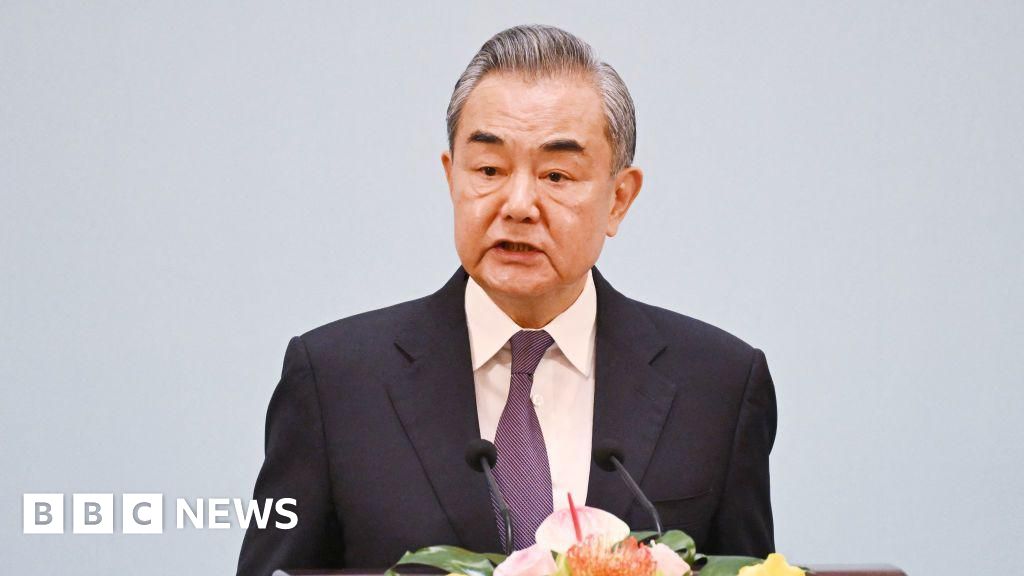World
China hits back at Nato over Russia accusations – BBC News

- Author, Tessa Wong
- Role, BBC News
China’s foreign minister Wang Yi has hit back at Nato’s “groundless accusations” that Beijing is helping Russia in its war on Ukraine.
He has also warned the Western alliance against stirring up confrontation.
Mr Wang’s comments, made in a call with his Dutch counterpart, came hours after leaders of Nato member states gathered in Washington DC and issued a declaration on the war.
They accused China of being a “decisive enabler” of Russia through its “large-scale support for Russia’s defence industrial base”, in some of their harshest remarks yet about Beijing.
They called on China to stop “all material and political support” to Russia’s war effort such as the supply of dual-use materials, which are items that can be used for both civilian and military purposes.
Western states have previously accused Beijing of transferring drone and missile technology and satellite imagery to Moscow. The US estimates about 70% of the machine tools and 90% of the microelectronics Russia imports now come from China.
Beijing was also accused of conducting “malicious cyber and hybrid activities, including disinformation” on Nato states.
On Thursday, while speaking to the Netherlands’ new foreign minister Caspar Veldkamp, Mr Wang said “China absolutely does not accept” all these accusations and insisted that they have “always been a force for peace and force for stability”.
In comments carried by state media, he said that China’s different political system and values “should not be used as a reason for Nato to incite confrontation with China”, and called for Nato to “stay within its bounds”.
His remarks was the latest in a flurry of angry responses from Beijing.
Earlier on Thursday, a foreign ministry spokesperson said Nato was smearing China with “fabricated disinformation”, while Beijing’s mission to the EU told the alliance to “stop hyping up the so-called China threat”.
Beijing has long rebutted accusations that it has been aiding Russia in the war and insists that it remains a neutral party. It has called for an end to the conflict and proposed a peace plan, which Ukraine has rejected.
But, besides the growing accusations of military support, observers have also pointed out that Beijing’s purchases of vast amounts of oil and gas have helped prop up Russia’s economy crippled by sanctions and replenish coffers drained by war spending.
Beijing’s official rhetoric on the conflict often mirrors Moscow’s – like them, China still does not call it a war – and Chinese President Xi Jinping has maintained a close relationship with President Vladimir Putin, with both of them famously declaring their partnership has “no limits”.
Beijing has accused the US and other Western states of pouring “fuel on the fire” by supplying lethal weapons and technology to Ukraine for its defence.
In recent weeks, several countries have gone a step further and allowed Ukraine to use their weapons to hit targets inside Russia.







:max_bytes(150000):strip_icc()/roundup-writereditor-loved-deals-tout-f5de51f85de145b2b1eb99cdb7b6cb84.jpg)


